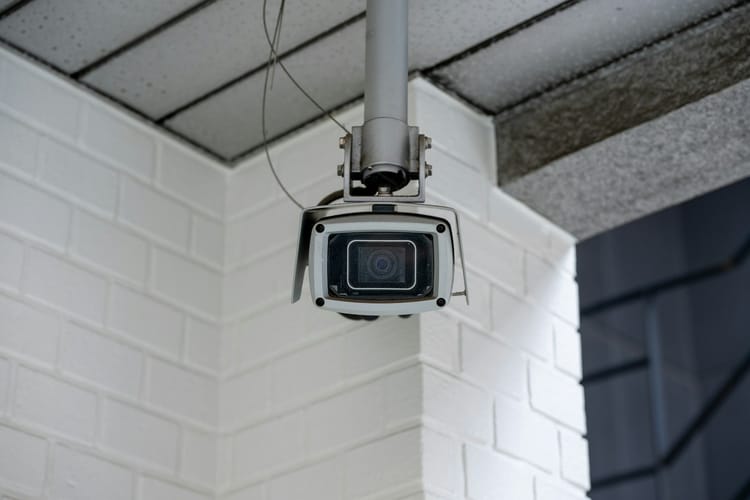UK & USA Under Cyber Siege: Privacy Lost, Data Breached, Threats Rising

In 2025, the UK faced a triple cyber threat. Apple's encryption battle loss, SimonMed's massive data breach, and a surge in nationally significant cyberattacks. Together, they signal a growing crisis in digital security and privacy.
SimonMed Breach Leaks Data of 1.2 Million Patients
SimonMed Imaging, one of the largest U.S. medical imaging providers, suffered a massive data breach impacting over 1.2 million individuals, exposing a wide array of personal, medical, and financial information. The breach, caused by an intrusion into a third-party vendor’s systems, allowed hackers to access SimonMed’s network between January 21 and February 5, 2025. Leaked data included names, addresses, Social Security numbers, medical records, diagnostic details, financial information, and even biometric data. Though SimonMed states there is no evidence of misuse so far, the scope of the breach makes the exposed patients highly vulnerable to identity theft and fraud.
The Medusa ransomware group claimed responsibility, demanding $1 million in ransom and threatening to release over 200 GB of stolen data, including mammograms and scanned IDs. While the data was never leaked (likely due to an undisclosed ransom payment) the breach triggered widespread criticism, legal scrutiny, and class action lawsuits alleging negligence. In response, SimonMed implemented stronger cybersecurity measures, including multifactor authentication and endpoint detection. However, experts warn this incident highlights the growing threat posed by third-party vendors in healthcare cybersecurity, reinforcing the sector's position as a prime target for cybercriminals.
Apple Loses Fight Over Encrypted Data Access
Apple's legal challenge against the UK Home Office has been dismissed by the Investigatory Powers Tribunal, effectively ending its opposition to a government order demanding access to encrypted user data. The case revolved around a secret Technical Capability Notice (TCN) issued in January 2025, requiring Apple to enable law enforcement to access encrypted iCloud data even data protected by its Advanced Data Protection (ADP) service. Although the tribunal cited a "change in circumstances" for the dismissal, reports suggest the UK modified the order to limit access to UK users only, easing diplomatic tensions with the U.S. Apple, while not confirming its next legal steps, reiterated its disappointment in being unable to offer ADP in the UK, citing growing data privacy concerns.
Despite the case’s dismissal, the battle over encryption is far from over. Privacy rights groups like Liberty and Privacy International are continuing their legal challenge against the UK government’s order, arguing it undermines civil liberties. The Home Office has neither confirmed nor denied issuing a revised TCN, but court documents suggest the government still seeks warrant-based access to encrypted data, where "reasonably practicable." Experts believe Apple may have dropped its appeal due to slim chances of success in court, especially under closed proceedings. Apple insists it has never and will never build backdoors into its services, reinforcing its commitment to user privacy even as global governments push for broader surveillance powers.
UK Faces Weekly 'Significant' Attacks as Nation Urged to Harden Defenses"
The UK is grappling with a dramatic surge in cyber threats, with the National Cyber Security Centre (NCSC) reporting that "nationally significant" cyber incidents now occur on a near-weekly basis - 204 cases recorded by August 2025, more than doubling last year's total. While none reached the level of a "national cyber emergency," 18 incidents were deemed “highly significant,” causing major disruption to essential services, government operations, or the national economy. Retailers like Marks & Spencer and Co-Op were among those hit during a wave of ransomware attacks tied to known vulnerabilities in platforms like Ivanti, Fortinet, and Microsoft SharePoint. The spike highlights a disturbing trend: threat actors, often sector-agnostic and opportunistic, are targeting unpatched systems across industries from healthcare to engineering.
State-backed attackers from China, Russia, and North Korea are also ramping up their campaigns, exploiting AI for automated phishing, breach escalation, and data theft. The report warns that North Korean actors are posing as freelance IT workers to gain internal access to UK firms, while pro-Russian hacktivists (motivated by global conflicts) are unpredictably targeting NATO-aligned entities. In response, UK ministers are urging top FTSE 350 companies to treat cybersecurity as a board-level priority, while smaller businesses are advised to prepare for disruption as inevitable. Experts emphasize the need for AI-driven threat detection, risk-based security strategies, and basic cyber hygiene like multi-factor authentication and system segmentation to withstand the rising tide of attacks in the AI era.




